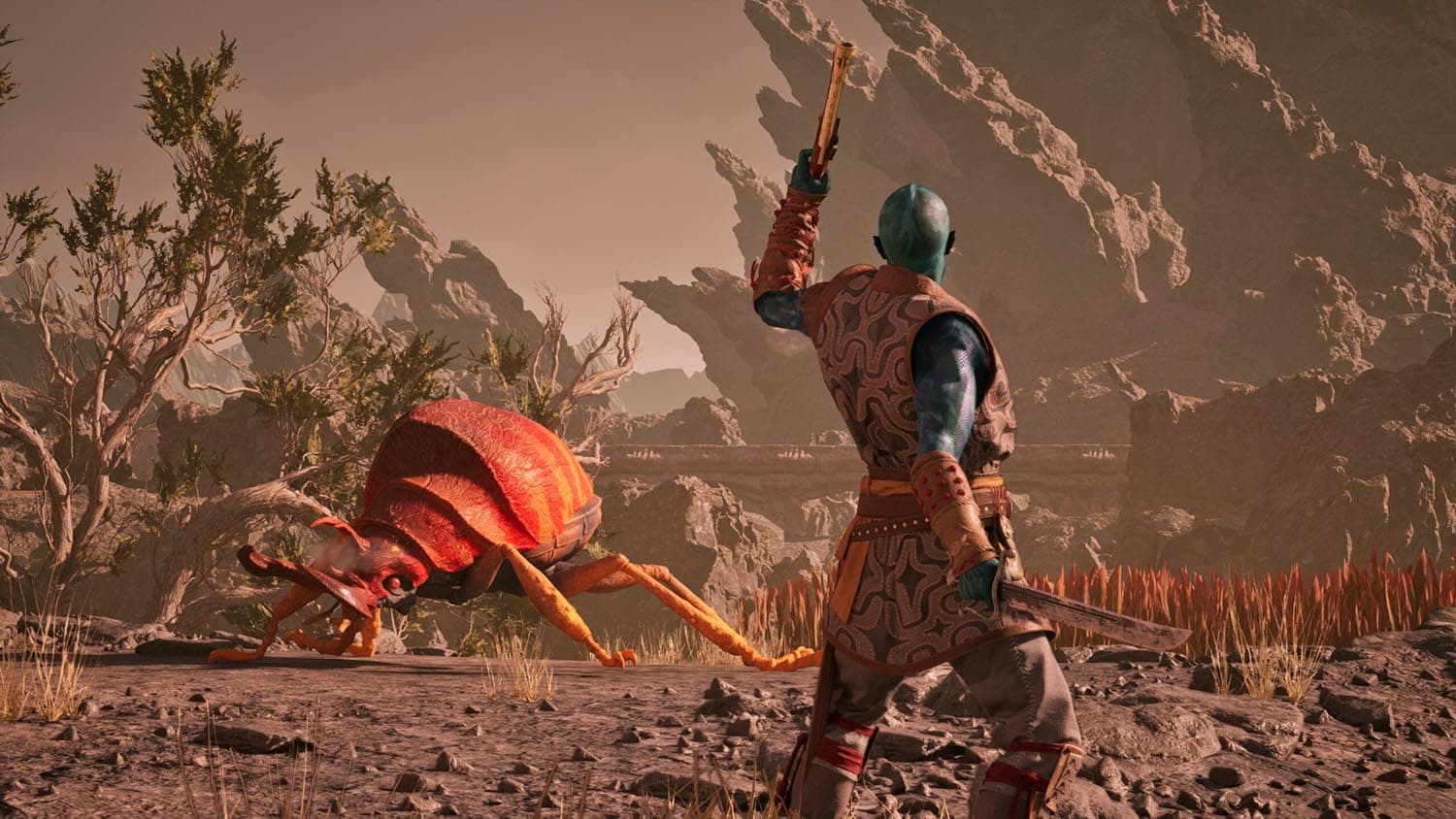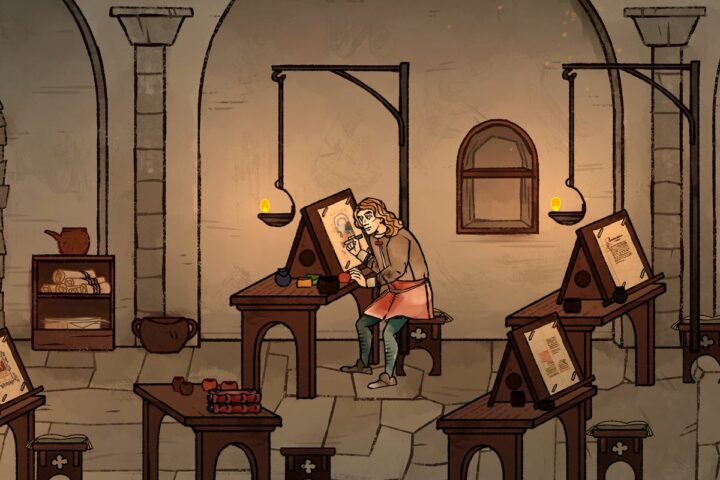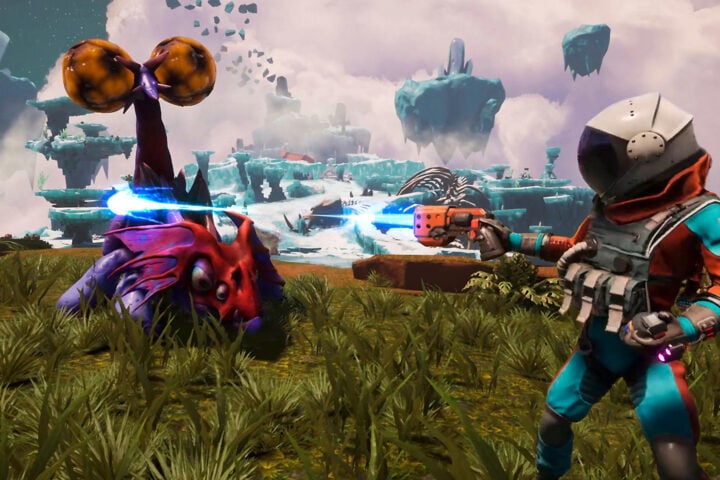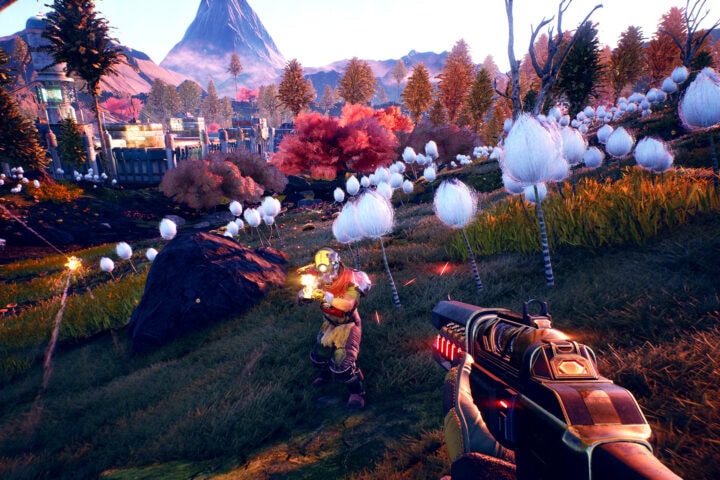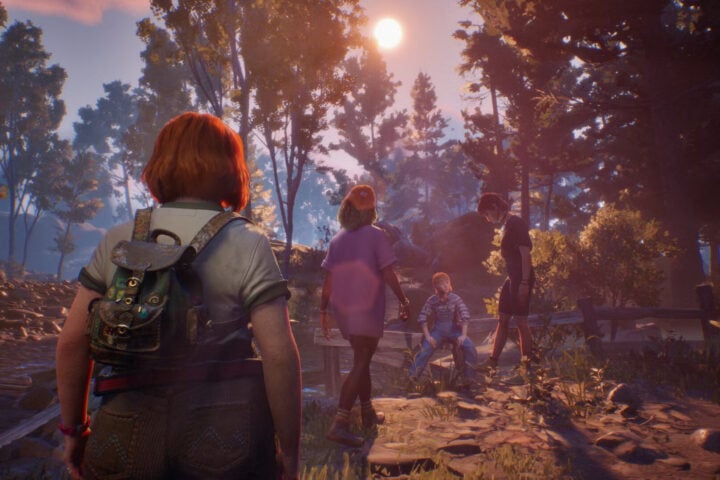Obsidian Entertainment’s Avowed is incredibly likeable for its unflashiness. This first-person RPG, which is set in the same universe as Pillars of Eternity, boasts neither overwhelming graphical fidelity nor the promise that you can go anywhere and do anything. It doesn’t get bogged down chasing the illusion of boundlessness—or, worse, endlessness—settling for something contained yet distilled, and it’s more potent as a result.
This focus comes through most obviously in the game’s world. Rather than being entirely open, it consists of a web of interconnected areas that each feel handcrafted to give your travels a sense of direction. Landscapes gently nudge you toward interesting side bits, which are in turn worth the effort to explore. Often you’ll find caves or ruins that are lovingly tucked away within the environments, and which carry a sense of reward not necessarily because they shower you with gear and money—though that’s a nice bonus—but because they’re so generously designed.
At their most ambitious, Avowed’s caves and ruins offer up self-contained side adventures that feel as rich as anything the player will find along the game’s critical path. And in instances when your poking around leads you on a detour toward, say, a hidden room or a small ledge, you’re almost always gifted with an extra touch of personality, usually in the form of a skeleton holding a note detailing a person’s at once tragic and comedic demise.
Individual quests, especially side quests, are surprising and often layered with interesting decision-making. Avowed’s characters respond believably to the choices you make, with new options opening up to you as a result of your actions, giving them a satisfying weightiness.
The main story’s Dreamscourge plague remains a bit too distant for too long, and the mysterious deity that keeps popping into your head can get a bit vague and philosophical. Thematically, though, the idea of nature overwhelming a collection of communities on the margins of the world is relevant. The dialogue that gets this story across lands on a tone that’s pleasantly light and often funny without coming across as glib. And in a game that abounds in lively voice acting, industry vet Brandon Keener (the voice behind Mass Effect’s Garrus Vakarian) turns in a particularly compelling performance as Kai, your roguish, affable companion.
Combat, which rarely shines in first-person action RPGs, even has its charms. Movement and attacks are crisp. Weapon design is smart and economical, with a handful of weapon types that each handle differently and can be mixed and matched in interesting and unusual ways. A few of the abilities in the game’s skill tree are delightfully oddball, especially parkour moves like power slides that stagger enemies and ground slams that stun them.
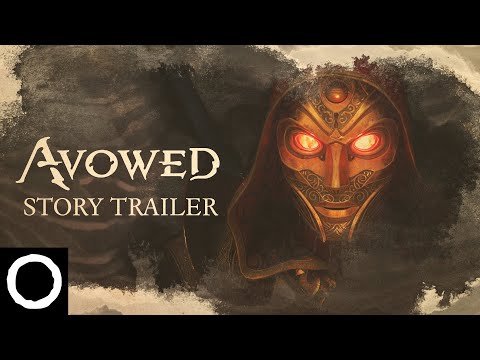
The game stumbles at times when it comes to bosses, which can put some strain on their pathing, as they can get stuck while navigating the environment, sometimes seeming to give up fighting entirely. But since many of these fights are only necessary to fulfill optional bounties, the missteps are relatively forgivable. Taken as a whole, the action is by no means the main selling point here, but it still offers a nice variety of creative ways to tackle each encounter.
Avowed’s Living Lands somewhat lack for flavor, mostly treading familiar ground for a fantasy video game, with a bunch of colorful mushrooms thrown in for good measure (though the aforementioned ruins belonging to two distinct fallen empires is a nice touch). The continent is still a useful backdrop, though, because its nature as an unorganized frontier gives Obsidian the opportunity to explore a wide range of different power centers. Rather than being ruled by one monolithic nation, the Living Lands is made up of a handful of settlements which form a tenuous conglomeration, and each part has its own set of interests and political structures.
From a major port hub where imperial newcomers are forcing out established residents, to a farming town inhabited by necromancer academics, to an isolationist community of dwarves—each one is fascinating to examine and satisfyingly challenging to navigate. Though your arrival as an envoy of the strict and orderly Aedyran Empire is usually taken as a threat to the local way of life, your charge to investigate the Dreamscourge is necessary for these places to survive.
It’s easy to imagine another game in this same vein that sharpens things up slightly, maybe with a more urgent main story or a more engrossing setting. But as is, these minor shortcomings can’t dull the fundamental RPG hooks that make Avowed sing as well as it does. Its brand of knotty dialogue and good old-fashioned adventuring is also what defines the games that Obsidian is best known for. And with many of the studios that swam in similar waters a decade or two ago far from the height of their powers, Obsidian’s deft hand feels as vital as ever. We can only hope that the decision-makers over at Microsoft think so too.
This game was reviewed with a code provided by Assembly Inc.
Since 2001, we've brought you uncompromising, candid takes on the world of film, music, television, video games, theater, and more. Independently owned and operated publications like Slant have been hit hard in recent years, but we’re committed to keeping our content free and accessible—meaning no paywalls or fees.
If you like what we do, please consider subscribing to our Patreon or making a donation.

